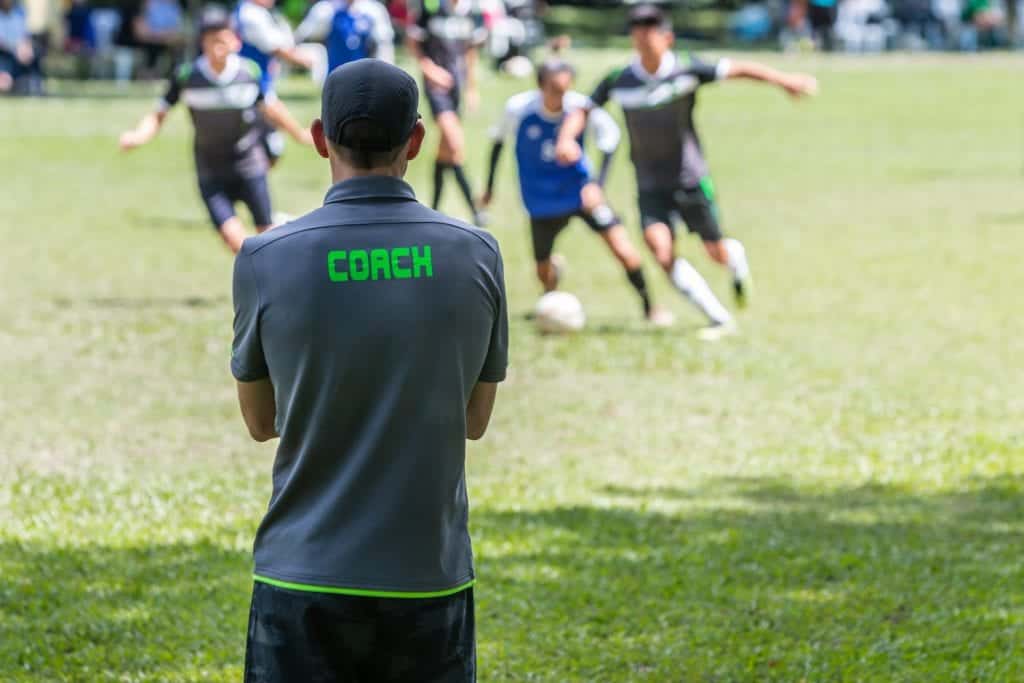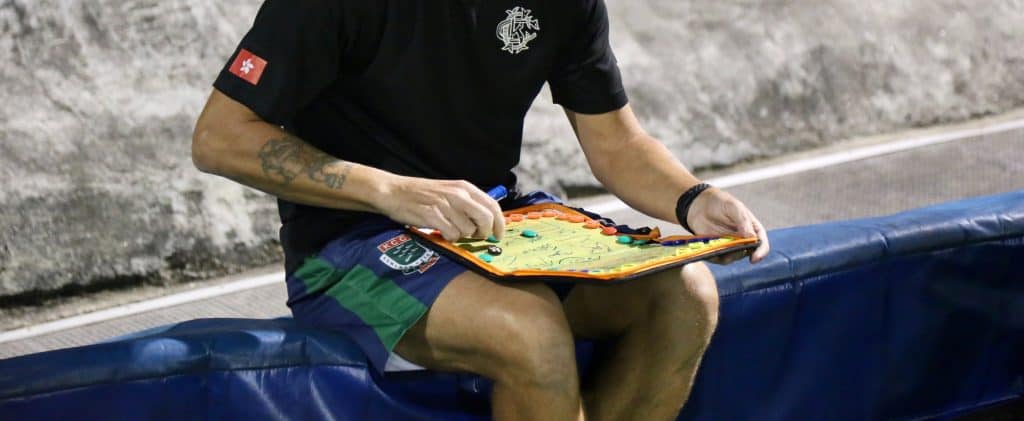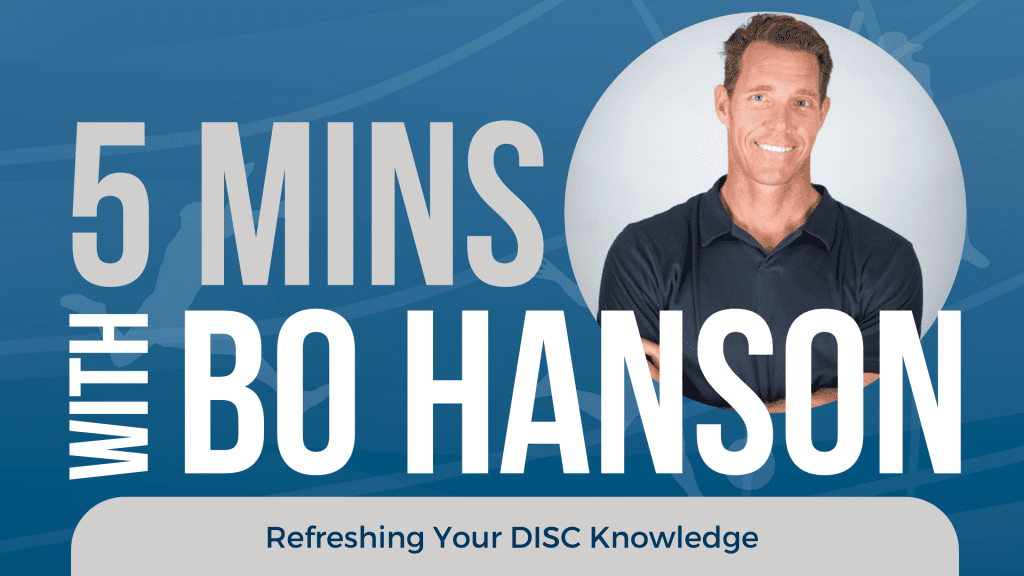The interesting thing about conversation, particularly when a group of topical experts are involved, is that unintentionally, the discussion will drift into an issue that underpins the area of focus. In a recent webinar we hosted with some exceptional coaches, who have each led their athletes to Olympic medals or NCAA Championships, advocating for yourself as a coach was exactly that topic.
When Becky Carlson, Matt Thurmond, and Tim McLaren, all super successful head coaches within their chosen sports, got together as part of our expert panel alongside Nicole M. LaVoi, Director of the Tucker Center at the University of Minnesota, and our own, Bo Hanson, a discussion on self-advocation spread across the globe (it’s an exceptional listen and we thoroughly recommend it). The primary focus of their conversation was to talk about what they do to lift their assistant coaches, as each have an outstanding track record of having their assistants move onto head coaching roles from their programs. However, during the course of the webinar they also touched on what their assistants and the people around them can do to advocate for themselves.
So, what does advocating for yourself actually look like, why is it important, and how can you do it? We decided tobuild on the panel’s discussions and add some thoughts and tips to answer just that.
If we take this idea right back to the beginning, we could ask ourselves, ‘why do I need to advocate for myself in the first place?’
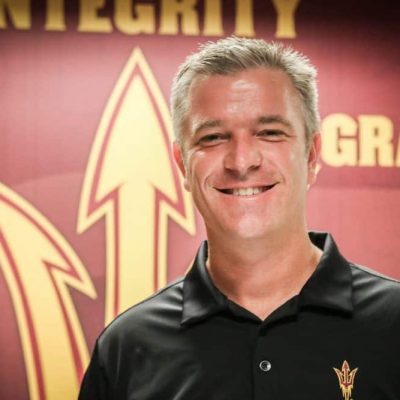
Matt Thurmond, Head Coach of Men’s Golf at Arizona State University considers that while it is his responsibility to make sure his assistants have the necessary skill set to become a head coach, the timing for their career progression is up to them. He says of his assistants,
“Their role ends up being very much like mine. I give them administrative responsibilities, I make them make offers, and I make them cut players. We share it and I think that’s the best thing I can do to help them prepare.”
But not all head coaches have the skills, time, and resources to train their assistants in all that they need to become successful head coaches themselves. So, with this in mind, it becomes even more important to know how to get what you need and ensure you are comfortable asking for help in developing the tools that will see you progress.
Let’s take a step back and ask ourselves, ‘what skills do we need to become a head coach?’
When you are analyzing your current skill set, it is imperative to look beyond technical ability and consider your natural preferences, strengths, and potential limitations. Do you know what you bring to interpersonal exchanges and how you build relationships with the people around you? Working with people, whether athletes, other coaches, or anyone else you come into contact with, requires an acute knowledge of yourself and the ability to be flexible so you get the most out of every exchange. This is what we refer to as behavioral self-awareness.
When it comes to coaching, seven-time Olympic Rowing Coach, Tim McLaren says,
“You are always bouncing around between the technical and people management skills. So Athlete Assessments’ DISC Profiles are a really educational tool for our coaches and athletes to take that little bit more responsibility for themselves, develop self-awareness, and more knowledge about how to deal with others.”
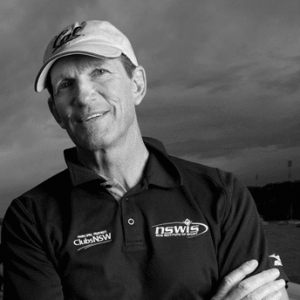
An Athlete Assessments DISC Profile will also give you pointers about the areas of your professional coaching that you might need help developing, like your communication skills, or the way you approach or talk about problem solving or motivation.
Questions that you might ask yourself to help identify what skills you need to sharpen or learn to enable your career progression include;
- Are there any tasks that I don’t feel comfortable doing?
- Are there any situations where I feel out of my depth?
- Would I feel more self-assured if I had more knowledge about using a particular skill or technique?
- Are there particular situations where the people I’m talking to repeatedly misunderstand or are confused about what I’m saying?
Of course, formal performance reviews will give you a good indication of where to focus your professional attention to, but you do not always have to wait for a formal opportunity, your colleagues and senior staff will often be more than willing to give you feedback on the fly, providing you with items to add to the ‘To Be Improved’ list.
By now, if you’ve asked yourself these questions, and maybe even sought out some informal feedback, the list of skills you’d like to improve on might be quite long. But don’t be overwhelmed! We all need a personal list of ‘work-ons’, as without one you can become stagnant in your performance or capability.
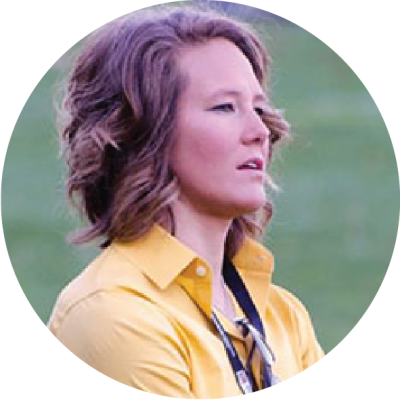
Having a list or structure behind advocating for yourself, also allows you to really focus on developing the right areas or identifying the right people to ask. Head Coach of Women’s Rugby at Quinnipiac University, Becky Carlson, had this advice for assistant coaches looking to develop their coaching capabilities,
“There has to be some initiative there for you to say, ‘Hey, I’d really like to improve on this portion of my coaching. Could you help me?’ Be very specific with it.”
One thing we often find comes up when we talk to our clients or other coaches, is the way that younger coaches and a lot of younger athletes in general, are not comfortable with difficult situations and conversations. While we now get most of our information and updates over social media, emails, and texts, and these platforms play a vital role in our everyday life, fundamentally we need to remember that in sport coaching we are working with people. So, to be sure that our messages are being understood and received as intended, the best way to communicate with people is to have a two-way conversation, face-to-face.
Difficult conversations are a big part of sport, in fact they are a critical part of sport. Holding people accountable, setting standards so your athletes grow and perform at a level beyond their current capabilities, even deciding on and then communicating playing time, team lists, or competition rosters, these are just some of the common interactions we lead. But as coaches, our days are built on difficult situations and conversations, and the only way to get comfortable with them is to regularly put yourself in these environments. You can do this by paying attention to how you respond, while looking to learn from coaches who you know manage situations well, get the outcomes they need, and leave everyone more motivated to make changes with their sense of self intact.
Being unprepared for the number of difficult conversations that are involved in a head coach’s role was a recurrent theme among the coaches, as they each reflected on their transition from assistants to head coaches. Nicole shared that during her time as an assistant coach, her head coach utilized her administrative skills and tended to deal with dissatisfied players, cutting athletes, and the necessary conversations with parents alone. If you are not getting the support that you want or need from your program head coach, the fact remains that you still need someone to talk through situations, possible options, and techniques. One solution is to reach out to us at Athlete Assessments and ask us to put you in touch with a head coach who might mentor you; assistant coaches working with head coaches outside of their own teams or programs is a pretty common situation.
So, regardless of whether you are working directly with your own head coach or a mentor within another program, you still need to be specific about what you want help with. Top coaches in any sport are always working on and developing themselves, their qualities, and skill sets, and will welcome your enquiries and respect your need and desire to develop in your own right. However, it’s also important to recognize that like any skill development, it takes time, and you should not feel pressured to progress in your career instantly or at the same time as someone else. Matt shared that as a head coach, he generally expects his assistant coaches to move on after about four years, almost as if they too are graduating from his program. This progression might see them moving into a stepping-stone position to continue their development, all while building towards finding their final landing place. The transition from assistant to head coach, can either feel smooth or like you’ve jumped a hurdle for the first time, being proactive in your development and preparing yourself for your career progression by utilizing the resources and knowledge of people around you, will help ensure you experience the former of the two.
Where to from here?
What we are hearing a lot from highly successful coaches, is they want their assistants to advocate for themselves by reaching out to ask for help in developing specific aspects of their coaching game as identified through self-awareness. If you haven’t already taken one of our Athlete Assessments DISC Profiles; the AthleteDISC, CoachDISC, or Sports ManagerDISC, are great starting points for your behavioral awareness for personal and professional development, and can act as a conversation starter for initiating your development.
Being aware of the skills and qualities you naturally possess is the first step towards improvement, then, in tandem with quality mentoring and input, you are in the perfect position to develop and grow. Ask for help to develop and advocate for yourself! We encourage you to read through our free online resource library, there is a deep catalogue detailing what some of the top coaches in every sporting code do. If we can help you be better at what you do or apply any of our ideas, just reach out and contact us.
Recommended Articles
When we look at leaders in any endeavor, we often see their success critically defined by their leadership philosophy, and when it comes to sport coaches it is exactly the same. Having a defined coaching philosophy is key to effective coaching (and leadership), but the process of developing and understanding your own philosophy is often sidelined. When your team relies on your performance as a coach as much as they do on technical execution for achieving a winning outcome, this process is a priority.
Can a coach coach themself? It’s an interesting question to ponder. While the role of a coach is to constantly work with their athletes and team to develop and improve, and we know that coaches by nature and role can be excellent at developing others, what about when developing themselves?
In line with the release of our new look DISC reports, we wanted to provide a refresher on the history of DISC and basics of each profile. Bo talks about where it began, why it’s important, and the value in knowing your own profile and preferred behaviors and even identifying that of others.


